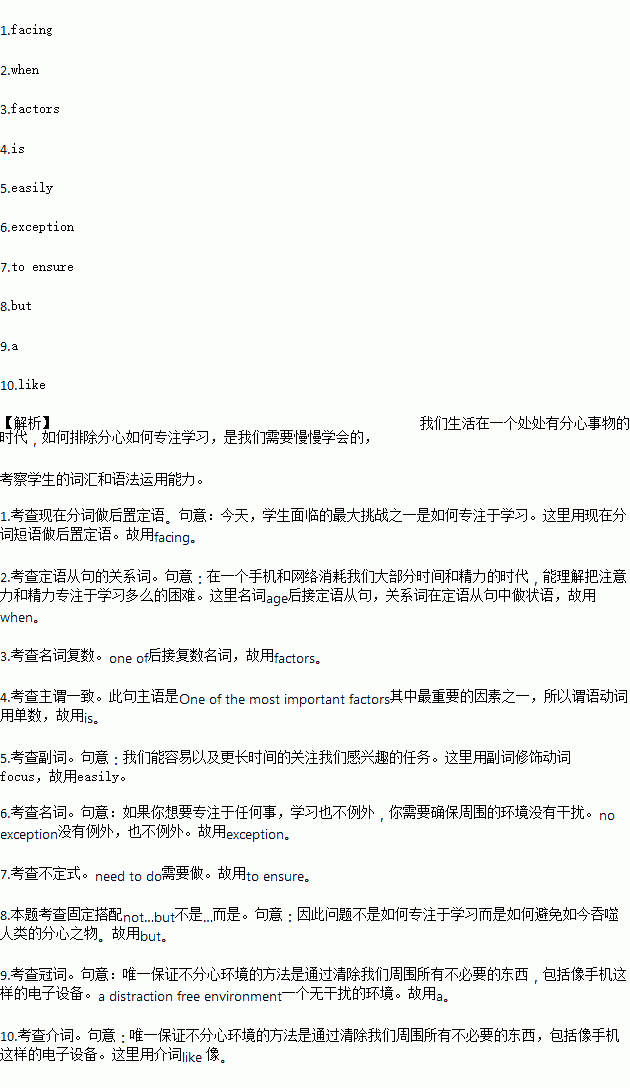题目内容
One of the biggest challenges1.(face) students today is how to concentrate on studies.Almost all of them are struggling for their concentration power.In an age2.mobile phones and Internet are eating up most of our time and energy,one can understand how different it is to focus attention and energy on studies.
One of the most important3.(factor) for developing concentration on a task,whether it is study or anything else,4.(be) to develop an interest in that task.We are able to focus5.(easy)and more long periods of time on tasks that we find more interesting.If you ever want to concentrate on anything and studies are no6.(expect),you need7.(ensure) that the environmental around you is distraction(注意力分散)free.So the question is not how to concentrate on studies8.how to avoid distractions that have swallowed up mankind today.The only way to guarantee9.distraction free environment is by getting rid of all the unnecessary things around you,including the electronic gadgets(小器具)10.mobile phones.
假如你是校报英文版编辑,要发一篇关于“东莞市首届英文歌大赛”报名通知,内容包括:

报名时间 | 3月10日――5月10日 |
参赛人员 | 在东莞工作、生活、学习的英语爱好者、外籍人士等; |
上传材料 | 30秒的个人介绍 |
活动意义 | 提高英语学习兴趣、结识新朋友 |
参考词汇:报名sign up 上传upload
注意:1. 词数100左右;
2.可以适当增加细节,以使行文连贯;
3. 开头和结尾已给出,但不计入总词数;
4.文中不能出现真实校名或姓名。
[评分评准]
句子结构准确,信息内容完整,篇章结构连贯。
Notice
Hello, everybody!
The 1st Dongguan English Singing Talent Show is going to be held. __________________________________
____________________________________________________________________________________________
____________________________________________________________________________________________
____________________________________________________________________________________________
____________________________________________________________________________________________
____________________________________________________________________________________________
________________________________________________________________________
Thank you
Editor Li

